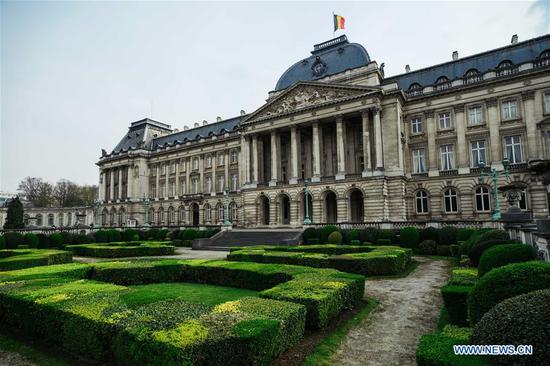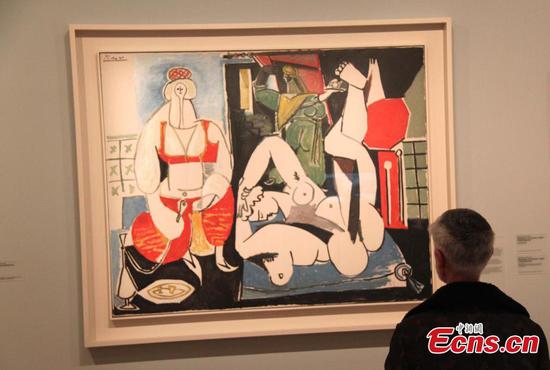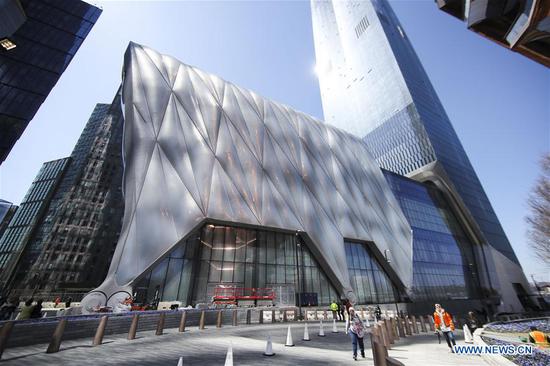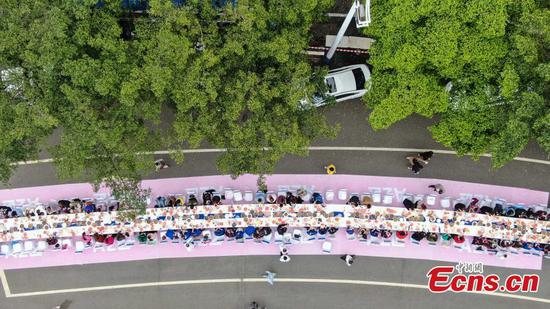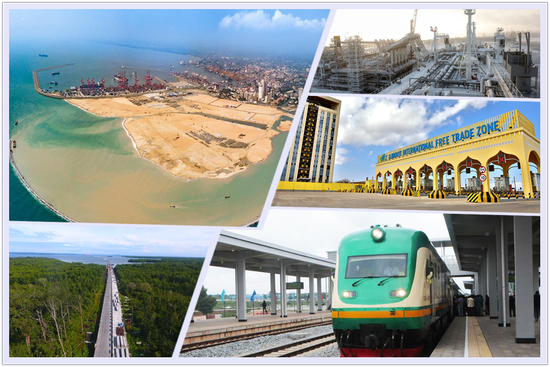Crowds marched on Saturday in Paris and other French cities as "Yellow Vest" movement staged its 21st consecutive weekend of demonstrations against President Emmanuel Macron, amid growing uncertainty over his ability to resolve the bottleneck.
The movement began last November over rising fuel tax and the cost of living, and has evolved to a broader uprising against the 41-year-old president's leadership and his pro-business reforms.
Thousands converged to the Place de la Republique (Republic Square) to ask for "fair tax, social and ecology policy." Gathered peacefully, they marched towards La Defense, a business district, "which we want to regulate," according to "GJ special operations," one of the movement's faction on social media.
Waving tricolor flags and chanting anti-Macron slogans, protesters congregated in Montparnasse, on the left bank of the Seine, after authorities banned protests in the Champs Elysees avenue and the Arc de Triomphe monument, which had been flashpoints of clashes and vandalism in recent weeks.
The French Interior Ministry said that there were 22,300 protesters spread across the country, including 4,000 in Paris. Last week, the movement drew 33,700 participants nationwide, including the 4,000 in the capital.
Protests have generally gotten smaller, as the number of protesters peaked at 287,710 nationwide in November last year.
Despite falling turnout, the spontaneous social media-driven movement is still locking horns with Macron, suggesting that the gloom in the Elysee is not over.
The head of state had offered a series of concessions that began with a drop of a planned high fuel tax. Among other sweeteners, he proposed "an economic and social emergency plan" worth 10 billion euros (11.21 billion dollars) to boost purchasing power.
Furthermore, he launched national consultations on Jan. 15 to respond to the French public's diverse complaints.
Five months on, the "Yellow Vests" impression of Macron has been cemented, pushing his approval ratings to an all new low.
According to an Elabe online survey published on Thursday, 28 percent of about 1,000 respondents expressed confidence in Macron's ability to fix the social and economic crisis.
This figure was 3 percentage points lower than a month earlier.
Only 5 percent said they fully approved the president's actions, down from 7 percent in March.
With an eye on this spring's European election, a crucial contest for the pro-European president to defend his political prowess, Macron has been betting on the proposed three-month debate and face-to-face meetings with people to quell the social unrest.
"I'm not deaf, that's why I'm in touch, that's why I started the debate," Macron said at the opening of a meeting with some 600 mayors of Occitania in southern France on Jan. 18.
Since then, and in a change of approach, he had been touring French cities and rural regions to drum up support. Videos showed him rolling up his shirt-sleeves, and for several hours he explained his policies and justified his economic roadmap to persuade the middle class and blue-collar workers that he was not out of touch.
A new batch of measures following the "great debate" are expected by mid-April, but it's uncertain if the public consultations will be enough, with many protesters still calling for Macron's resignation.
According to the Elabe online survey, a large majority of people said the government would not take into consideration the different points of view expressed during the town debates across French cities, notably in rural zones.
"The national consultation does not seem to attract all the 'Yellow Vest' protesters who continue to express their complaints outside the debate," said Erwan Lastrohan, analyst at BVA Opinion, a French market research and consulting firm.
"If the government does not take into account enough elements emerging from the debate to define its policy, it risks fueling (an) anger which (it) can no longer handle," Lastrohan added.
On Monday, French Prime Minister Edouard Philippe will outline the initial findings that emerged from 10,000 meetings with local mayors, students, workers, intellectuals as well as 1.9 million contributions online and 16,000 in "grievance books" opened up by mayors across French communes.
"Everything is on the table and nothing is decided," said Sibeth Ndiaye, the government spokesperson, on April 1, pointing out that the magic measure that can defuse public anger is still out of reach.









